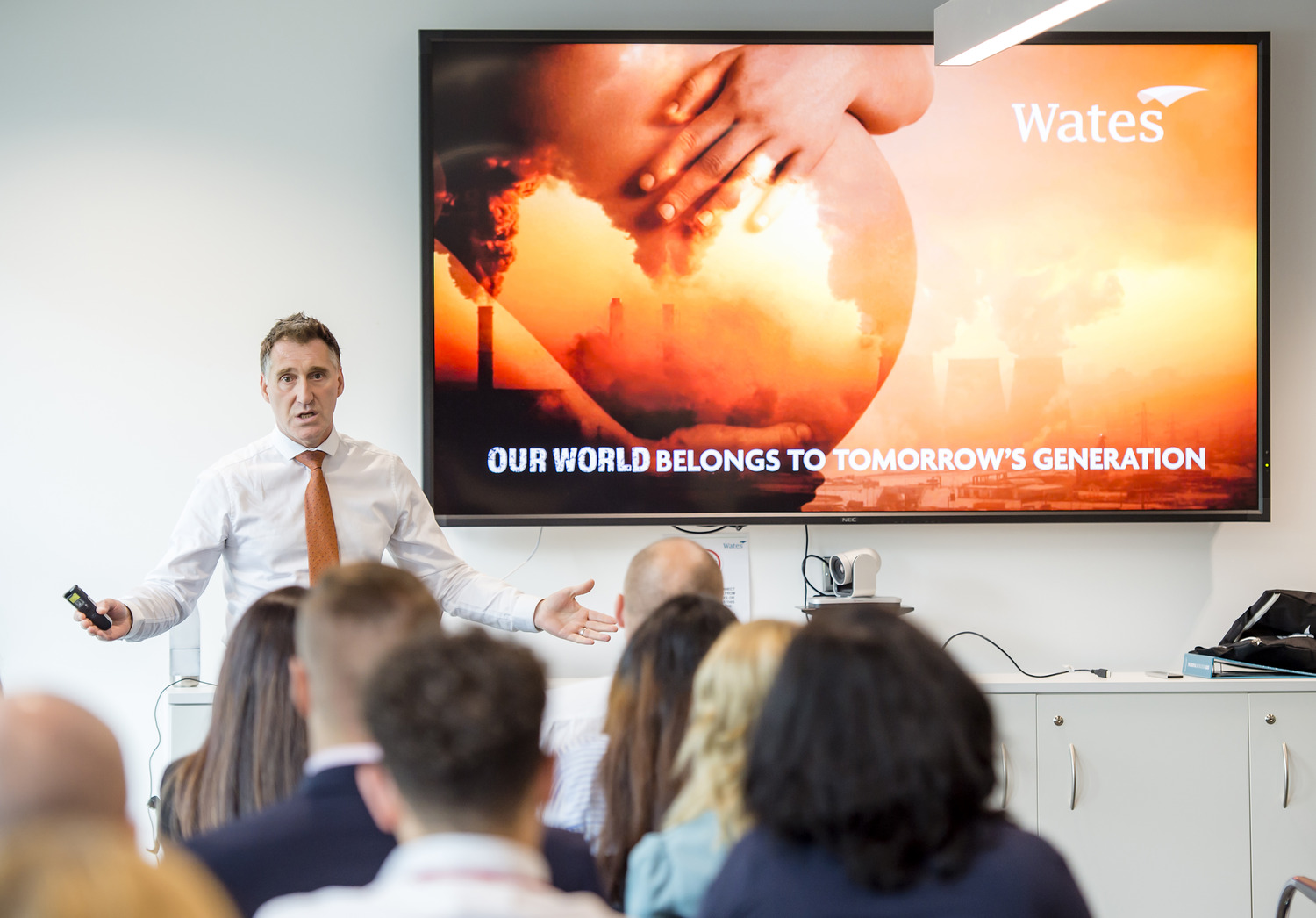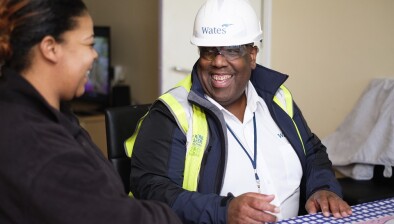Wates Group commits to zero waste and carbon from operations by 2025
Construction, development and property services company Wates Group has outlined a commitment to eliminating waste and carbon from its operations by 2025.

The company has committed to three bold targets to help ensure it does ‘zero harm’ to the environment:
- Zero waste from Wates operations by 2025 – Wates aims to reduce and then eliminate the production of all waste created from on-site operations.
- Zero carbon from Wates operations and operational vehicles by 2025 – Wates aims to reduce carbon emissions from Scope 1 and 2 operations and to become carbon neutral.
- Positive impact on nature from all operations – Wates aims to enhance the natural environment wherever it operates and to increase the value and community benefit of natural environments.
To achieve this, Wates will take a number of meaningful actions, for example switching to an all-electric commercial vehicle fleet, eliminating single-use plastic from its operations and supply chain, investing in sustainable building techniques, organising sustainability placements for graduate and apprenticeship staff, planting 5,000 trees annually and ensuring that all sites or frameworks deliver at least one nature enhancement project – such as local conservation work.
In 2020, the focus will be on raising awareness, education and engagement, as well as using data collection to set accurate benchmarks. A key part of achieving zero harm to the environment will also be working collaboratively with customers, supply chain and joint venture partners, to find better and more innovative ways to reduce waste and energy consumption and to enhance the natural environment.
Wates has a track record of success in addressing challenging and complex issues. Wates has achieved industry-leading performance in health and safety, following the launch in 2016 of its ambitious five-year programme to achieve Zero Harm in safety by 2020. The target-led programme led to a sea-change in culture and behaviour and a huge drop in the frequency rate of accidents (AFR), with the last recorded figures showing the RIDDOR AFR down 26% from 2017 at 0.035 – equivalent to a 70% drop over five years.
These environmental targets now challenge Wates, its workforce and the industry to use a similar behavioural change approach to set new standards in how it manages waste, carbon emissions and its impact on the natural environment.
It also comes after a year in which the business has started doing more to protect the environment. In 2019, Wates offset 1,042 tonnes of CO2 by supporting international offset projects and enhanced the UK environment by planting 5,230 trees. In the same year, 74% of the electricity used by the Wates Group came from renewable sources.
Since 2016, Wates has increased the procurement of renewable energy by 70%. It has also supported and encouraged its clients to manage their buildings more sustainably through Wates Sustainable Technology Services, which acts as a consultant putting clients together with specialist suppliers of innovative environmental products which reduce energy and water consumption.
David Allen, Wates chief executive, said: “We have established bold, ambitious, deliberately stretching targets for creating zero harm to the environment by 2025 because we believe that by committing to something extraordinary, we can achieve something extraordinary. Together with our partners, we will reduce waste and carbon, and improve our natural environment for generations to come.
“Our industry has made and continues to make an unhelpful contribution to the global climate crisis. We have a responsibility to reduce and eventually to reverse the impact we’re having on our planet and are determined that everyone in the Wates Group will do what is necessary to make a real and lasting difference.”
John Dunne, group health, safety, environment and quality director, added: “It’s no secret that we work in one of the least environmentally sustainable industries in the world. According to the Construction Climate Challenge, our sector is responsible for up to 50% of climate change, 40% of energy usage and 50% of landfill waste.
“At Wates, we know that this cannot continue. We are choosing to take a leading role in reducing our industry’s environmental impact. We work with a diverse range of public and private sector partners and businesses of all sizes are part of our supply chain.
“A key part of achieving zero harm to the environment will be working collaboratively with these partners. Our strategy will focus our attentions and energies on achieving zero waste, zero carbon and positive nature enhancement by 2025; and everyone has a vital role to play in achieving it.”

















